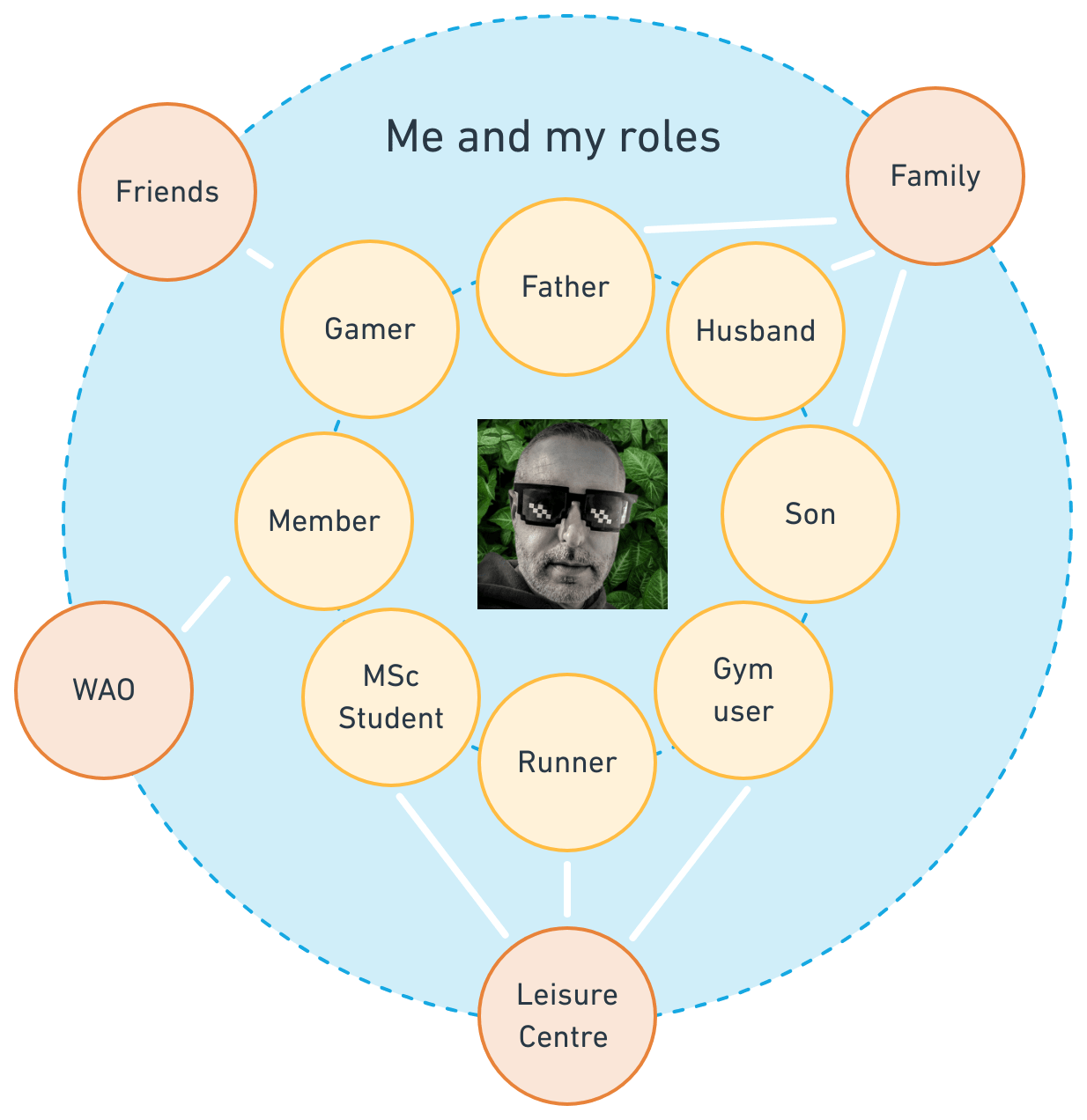TB871: Modelling myself as a viable system
Note: this is a post reflecting on one of the modules of my MSc in Systems Thinking in Practice. You can see all of the related posts in this category.
Activity 3.12 (The Open University, 2020) asks me to model my (sad little) life as a viable system. So here goes:

My life in systems
Thinking about the roles I play in my life as systems, I can represent them in the following way:
- Father: I am a system to nurture and support my children.
- Husband: I am a system to partner and collaborate with my wife.
- Son: I am a system to support and assist my parents.
- Gamer: I am a system to enjoy video games.
- Member: I am a system to engage in work or organisational activities.
- MSc student: I am a system to learn and apply systems thinking.
- Runner: I am a system to maintain physical fitness through running.
- Gym user: I am a system to enhance my physical health.
I guess I didn’t include ‘friend’ as one of the eight things on there, but it’s implied 😅
Identifying sub-systems
If we take one of these roles, let’s say father and identify sub-systems, then we get:
- Provider: helping ensure financial stability and resources for my family.
- Educator: guiding and teaching my two teenagers in terms of values, knowledge, and life skills.
- Caregiver: providing emotional support, care, and attention.
- Disciplinarian: enforcing rules and standards to ensure appropriate behaviour and development.
- Companion: engaging in leisure activities (i.e. play) to build bonds.
Sub-sub-systems?
Going a stage further, we could take one of the above sub-systems, let’s say educator and go a stage further. Kind of like the film Inception (2010) which I watched again recently with my son:
- Helper: assisting with school assignments and educational activities to help my children understand and complete their schoolwork effectively.
- Life skills teacher: educating my children in terms of practical skills (e.g., putting together furniture, digital literacies) so that they are prepared forindependent and responsible living.
- Moral guide: inculcating ethical values and appropriate social behaviour to instil a strong moral foundation and social awareness.
- Supporter of interests: encouraging and supporting my children’s sports and hobbies to help them develop their talents and curiosity.
- Problem solver: assisting my children in developing critical thinking and problem-solving skills by guiding them through challenges and obstacles.
References
- The Open University (2020) ‘3.2.5 Understanding yourself as a system’, TB871 Block 3 Tools stream [Online]. Available at https://learn2.open.ac.uk/mod/oucontent/view.php?id=2261487§ion=3.5 (Accessed 19 June 2024).

